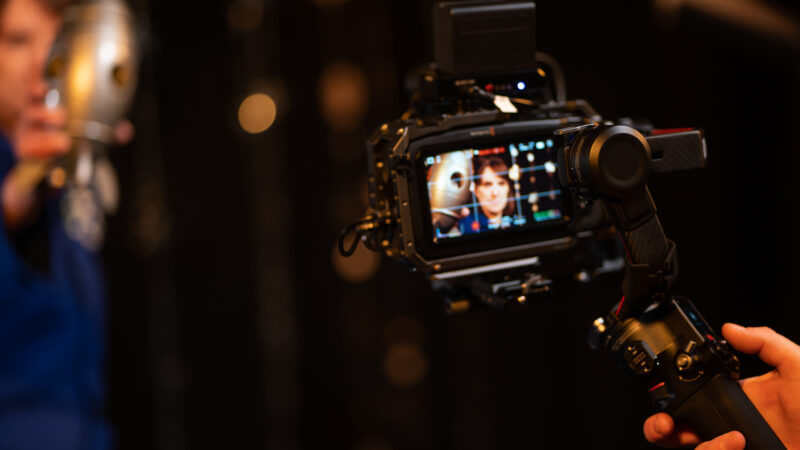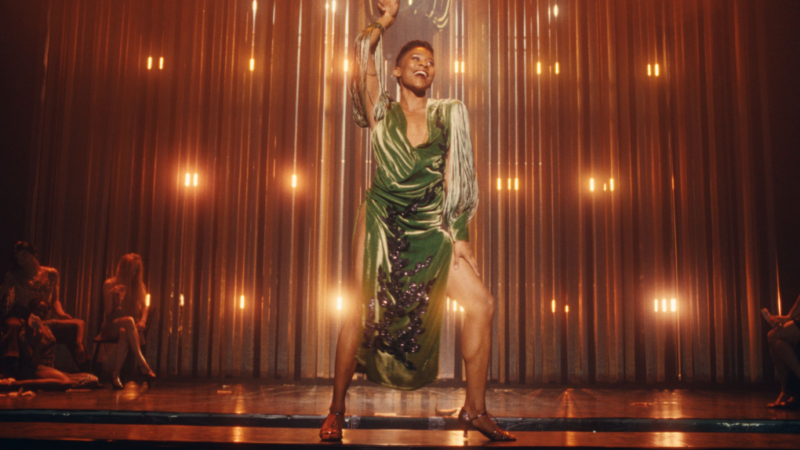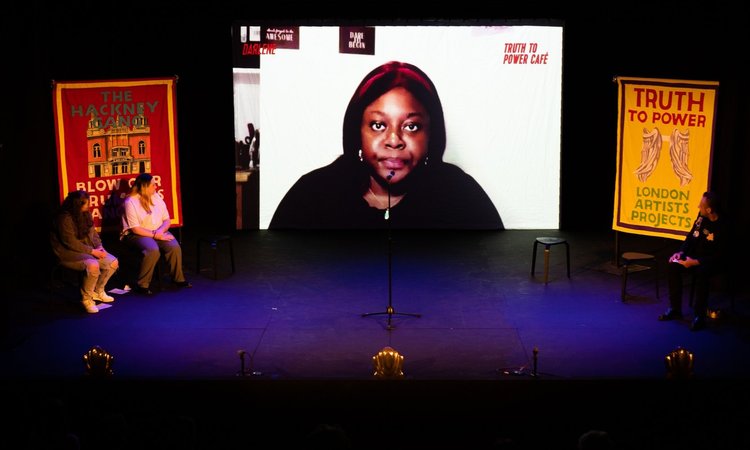What happens when you challenge a company known for setting things on fire to be more ambitious? Alan Lane talks about Flood with Eleanor Turney.
When Hull became City of Culture 2017, Director Martin Green challenged Leeds-based company Slung Low to think big. The company’s Artistic Director Alan Lane explains: “He was very keen for us to think about what ambition looked like for a company that had just done an 184-strong riot in the middle of Sheffield. Make the biggest thing you can make, he said.”
Slung Low is known for its sweeping shows with huge casts: Camelot, involved 137 performers from Sheffield People’s Theatre performing a contemporary reworking of King Arthur myths, and The White Whale, a floating, flaming adaptation of Moby Dick gave away 4,000 free tickets. This is a company that constantly pushes the boundaries of what theatre is and could be.
Pushing the boundaries
Lane says: “Scale and ambition are always the questions for us, because at some point we completely accept we’re going to get too big to be useful, or we will increase our scale to a point where we stop doing what we’re meant to be doing. So, with this show, we were interested in whether we could try something huge in episodes.”
The resulting show, Flood, was a four-part epic, stretching across land and sea, taking the best part of Hull’s City of Culture year to a conclusion. The piece was written by playright and director James Phillips, with whom Slung Low had also collaborated on with The White Whale.
Some people “were terribly scared about the bits we weren’t scared about, like the fire and the sets coming out from under the water and all that stuff,” says Lane. “I just said, everything we’ve ever done, it’s always on fire – don’t worry about it.”
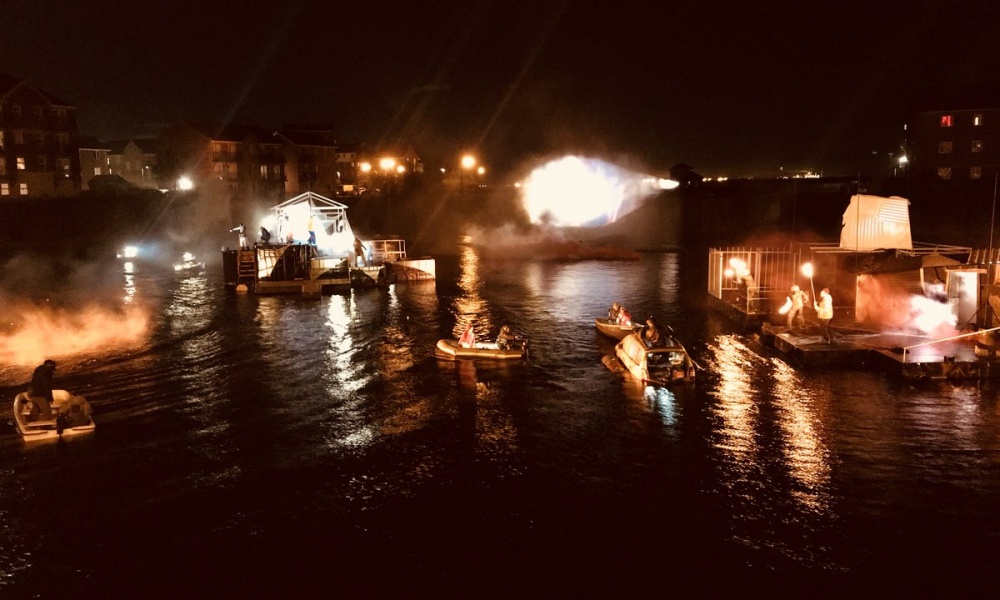
For a show of this scope and scale to work, Lane and the team were clear that part of it would be on film, and that digital technology could play a role in realising the final work. Part one of Flood, which served as a prologue to the wider narrative, is a short film – commissioned by The Space and available on YouTube – Lane tells me: “we wanted there to be a piece of video that would whet people’s appetites, but that was specifically not marketing”, and other parts have been screened on BBC2.
“We talked long and hard about how those things are separate and, really confusingly, in many institutions, including Hull 17, ‘digital’ and ‘marketing’ are the same department. The box office website sells tickets, but the same box office website doesn’t hold any art. So we talked a lot about the distinctions between the two, and for us it’s about a piece of the plot that absolutely wouldn’t be able to be seen in the live show and could be presented to audiences both as quite an interesting short film and also as the prologue to something bigger.”
The prologue film is set on a boat and, without spoiling the story, would have been tricky to render realistically on stage. It’s been watched by 180,000 people – far more than could have witnessed the live elements of the project. “180,000 people saw that video, and they were from all around the world, and they continue to dip into things that we would never usually be able to share. Normally, we would get our marketing department to make that 90 second video that everyone makes about their show. This was different. I think the way the technology has been most useful in this project, is how Brett [Chapman, Digital Producer] approached it. Although it has allowed us to explore ideas in more technical ways, it’s really just old-fashioned storytelling.”
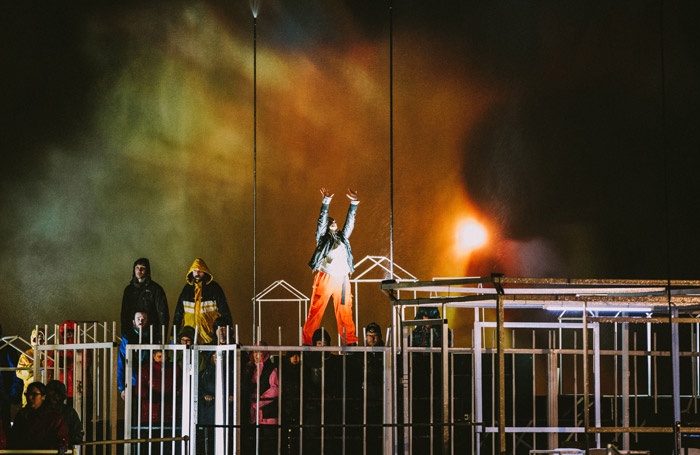
Brett Chapman joined the project as Digital Producer after much thought from the Slung Low team about how that role could enhance the work. “It was a provocation, really,” explains Lane. “We asked: what would a digital producer look like, and how could they usefully sit within our team? Someone said they could sit within the marketing and communications department of Hull 17, and I said then all they’ll ever be doing is window-dressing. If they are to genuinely create new content, then they need to sit in the heart of the creative team. And that’s what Brett has done. We’ve ended up generating content and engaging audiences in a way that we would never have done before. We couldn’t ever have imagined what’s been done. It belongs to Brett.”
Embracing technology to tell stories
Slung Low has embraced what technology can offer, but the storytelling remains hugely important. Flood touches on issues around climate change and the refugee crisis, but it is not explicitly about those things, says Lane. “Someone said, what answers does this play give? And I said, well plays don’t really give answers because that makes them really terrible plays.”
“If a play tries to create policy, it’s normally terrible theatre and not very good policy. I think if a play says we should do this about immigration, it’s a terrible play and it won’t do anything to convince anyone of anything. What I really love about Flood is everyone stands up and talks about these things. And there is a sense in these plays that you are talking about a question – the people who are on one side of the issue are as convincing as the people who are on the other. And I find that really exciting theatrically.”
As theatre evolves and develops, many theatre makers are exploring what technology can add to the mix. For Lane, “what the digital work has allowed us to do is explode out of fiction and go straight to the source. Brett goes and talks to people who are receiving refugees in Hull, and that’s a really interesting thing that the play couldn’t necessarily do, and shouldn’t do.”
“And so the digital work is looking at where reality crosses with fiction in a way that the play couldn’t do within the format we have. And that’s really exciting. We often talk as a company about what’s the most useful way of doing this, and at the moment that means going to Calais and putting up shelters, or holding fundraisers. That’s us being useful, whereas art is actually not meant to be useful in the same way. It’s a different type of usefulness: can we hold the space for people to think about some interesting questions?”
The answer is clearly yes, with many thousands of people watching the four different parts of Flood, both online and in Hull itself, Lane is excited by what the digital elements have added to the work, but equally is clear about drawing artistic boundaries. “Someone asked, could all the characters tweet? And I said well, no because in the fiction we’ve created, the world’s ended and there’s no power. And those questions of how the digital can intersect with the fictional are really difficult.” By asking questions, Slung Low continues to push at the boundaries of what theatre is and what it could be in the future.
Winner of ‘Producer of the Year’ at The Stage Awards, Hull 2017…
…successfully created and coordinated one of the most complex theatrical events in recent memory including street parades, light shows, live streamed theatre and more. It welcomed more than a million visitors and committed to genuine audience development.
Eleanor Turney is a freelance arts consultant, editor and journalist.
How useful was this resource?

